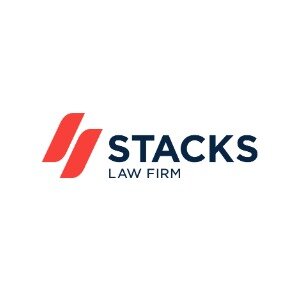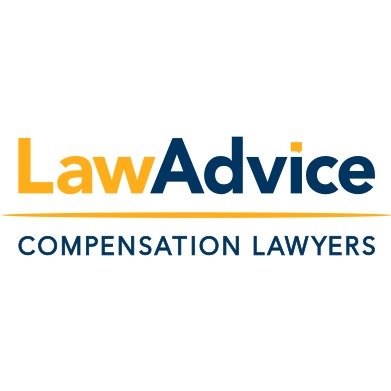Best Work Injury Lawyers in Hornsby
Share your needs with us, get contacted by law firms.
Free. Takes 2 min.
List of the best lawyers in Hornsby, Australia
About Work Injury Law in Hornsby, Australia
Work injury law in Hornsby, Australia, falls under the broader context of workers' compensation legislation in New South Wales (NSW). These laws are designed to protect employees who suffer injuries or illnesses as a direct result of their employment. The legislation ensures that injured workers receive financial support and medical care while they recover. Employers are required to have workers' compensation insurance to cover these incidents. Hornsby, being part of the Sydney metropolitan area, abides by these state-wide regulations, which offer a framework for handling work injury claims effectively and fairly.
Why You May Need a Lawyer
There are several circumstances where you may require the expertise of a lawyer to navigate work injury claims:
- Complex Cases: If an injury results in significant disability or complex medical conditions, legal advice is crucial to ensure adequate compensation.
- Claims Denial: Sometimes, workers' compensation claims might be unfairly denied by insurance companies, making legal intervention necessary to appeal the decision.
- Dispute Over Benefits: There may be disagreements about the amount of compensation or the duration of benefits, requiring legal expertise to resolve.
- Third-Party Fault: If a third party other than the employer is responsible for the injury, additional legal proceedings might be necessary.
- Permanent Impairment: Lawyers assist in obtaining proper compensation for permanent impairments through independent medical assessments and negotiations.
Local Laws Overview
In NSW, the Workers Compensation Act 1987 and the Workplace Injury Management and Workers Compensation Act 1998 are the foundational statutes governing work injuries. Key aspects include:
- Coverage: Most workers, including part-time and casual employees, are covered under NSW workers' compensation legislation.
- Benefits: Injured workers may be entitled to weekly payments, payment of medical expenses, and lump sum compensation for permanent impairment or death benefits.
- Reporting: Injured workers should report workplace injuries to their employer as soon as possible to facilitate a timely claims process.
- Dispute Resolution: Disputes regarding claims are typically handled by the Workers Compensation Commission, which can make determinations on contested issues.
- Return to Work Programs: Employers are encouraged to facilitate suitable duties for injured workers when medically appropriate to aid rehabilitation.
Frequently Asked Questions
What should I do immediately after a work injury?
Seek medical attention if necessary, inform your employer about the incident, and ensure the injury is recorded in the workplace injury register.
Are all workers entitled to compensation in case of injury?
Most workers in NSW, including casual and part-time employees, are entitled to compensation. However, some categories like subcontractors may have different entitlements.
What if my claim is denied?
If your claim is denied, you can request a review by the insurance company. If unresolved, you may contact the Workers Compensation Independent Review Office (WIRO) or seek legal assistance.
Can I sue my employer for a work injury?
In general, workers' compensation is a no-fault system, meaning you cannot sue your employer. However, if negligence by a third party caused the injury, a lawsuit might be possible.
What benefits are available for permanent impairment?
Workers with a permanent impairment may be entitled to a lump sum benefit, which varies depending on the degree of impairment.
How is the compensation amount determined?
Compensation is based on factors like the extent of the injury, pre-injury earnings, and medical assessments of the injury’s impact.
Do I need to use a specific doctor for treatment?
While some employers or insurers may suggest preferred medical providers, injured workers generally have the right to choose their treating doctor.
What role does the Workers Compensation Commission play?
The Commission resolves disputes related to work injury claims, such as disagreements over benefits or treatment plans.
Can I continue to work while receiving compensation?
Yes, if your doctor approves, you can work reduced hours or modified duties and still receive partial compensation.
Is there a time limit for making a claim?
In most cases, a claim should be made within six months from the date of the injury or from when the injury becomes apparent.
Additional Resources
- NSW State Insurance Regulatory Authority (SIRA): Provides guidelines and support for injured workers.
- Workers Compensation Independent Review Office (WIRO): Offers free assistance with disputes over workers' compensation claims.
- Hornsby-Kuring-Gai Community Legal Centre: Offers free legal assistance and advice within the Hornsby area.
Next Steps
If you need legal assistance for a work injury in Hornsby, it is advisable to act quickly. Start by consulting a lawyer specializing in workers' compensation. Collect all relevant documentation related to your injury, such as medical reports and correspondence with your employer, to support your case. You might also consider reaching out to one of the additional resources mentioned for guidance and to understand your rights and entitlements more comprehensively.
Lawzana helps you find the best lawyers and law firms in Hornsby through a curated and pre-screened list of qualified legal professionals. Our platform offers rankings and detailed profiles of attorneys and law firms, allowing you to compare based on practice areas, including Work Injury, experience, and client feedback.
Each profile includes a description of the firm's areas of practice, client reviews, team members and partners, year of establishment, spoken languages, office locations, contact information, social media presence, and any published articles or resources. Most firms on our platform speak English and are experienced in both local and international legal matters.
Get a quote from top-rated law firms in Hornsby, Australia — quickly, securely, and without unnecessary hassle.
Disclaimer:
The information provided on this page is for general informational purposes only and does not constitute legal advice. While we strive to ensure the accuracy and relevance of the content, legal information may change over time, and interpretations of the law can vary. You should always consult with a qualified legal professional for advice specific to your situation.
We disclaim all liability for actions taken or not taken based on the content of this page. If you believe any information is incorrect or outdated, please contact us, and we will review and update it where appropriate.









